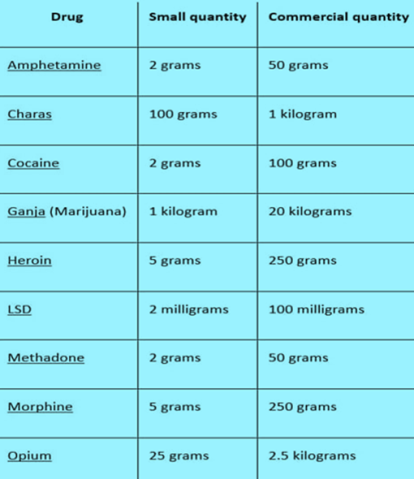Description

Copyright infringement not intended
Context: Two foreign nationals were arrested by the Central Bureau of Narcotics (CBN) Preventive and Intelligence team for supplying cocaine and synthetic substances in commercial quantities.
Central Bureau of Narcotics (CBN)
About
- CBN is affiliated with India's Department of Revenue.
- It is regulated by the Central Board of Indirect Taxes and Customs.
- The key responsibilities are to prohibit opium trading and production and to grant permits for the manufacture of authorised synthetic medicines.
- The headquarter is in Gwalior.
.jpeg)
Organization
- Narcotics Commissioner of India: The Central Bureau of Narcotics (CBN) is administered by the Narcotics Commissioner of India, a member of the Indian Revenue Service (IRS) and the Joint Secretary to the Indian Government.
- Deputy Narcotics Commissioners: Three Deputy Narcotics Commissioners (DNC), who are in charge of the units in the opium-growing states of Madhya Pradesh, Rajasthan, and Uttar Pradesh, assist the Narcotics Commissioner of India.
- Officers of the Indian Revenue Service make up the Central Bureau of Narcotics' Class I officers (Customs & Central GST).
- Preventative & Intelligence Cell (P&I Cell): There is a Preventative & Intelligence Cell (P&I Cell), which is led by superintendents (Group 'B' Gazetted Officers). They are tasked with carrying out the NDPS Act's search, seizure, and other related obligations.
- Officers report to the Deputy Narcotics Commissioner in charge of their respective Units.
Responsibilities
- They supervise the lawful production of opium poppies in 22 districts in Madhya Pradesh, Rajasthan, and Uttar Pradesh.
- They Investigate cases under the NDPS Act 1985 and file complaints in the Court.
- They issue permits for the production of synthetic narcotics.
- They issue import certificates and export authorizations for the export and import of narcotic drugs and psychotropic substances.
- They issue No Objection Certificates (NOC) for a limited number of Precursor Chemicals import/export.

Narcotic Drugs and Psychotropic Substances Act, 1985
About
- The Narcotic Drugs and Psychotropic Substances Act, or NDPS Act forbids the manufacture, possession, use, sale, purchase, transportation, storage, and/or transportation of any narcotic drug or psychotropic substance.
- The Act applies all across India, as well as to all Indian nationals living abroad and to anybody travelling on ships or aircraft with an Indian registration.
- The Act is intended to meet India's commitments under the Single Convention on Narcotic Drugs, Convention on Psychotropic Substances, and United Nations Convention against Illicit Traffic in Narcotic Drugs and Psychotropic Substances.
Punishments
- Anyone who violates the NDPS Act shall be punished according to the amount of the prohibited drug found or consumed.
- Small quantity: Imprisonment that may last up to a year, with a fine that may reach Rs 10,000, or with both.
- More than a small quantity but less than a commercial quantity: Imprisonment up to 10 years, with a fine that may reach Rs 1 lakh or both.
- Commercial quantity: Imprisonment not be less than 10 years and may reach 20 years, as well as a fine that must not be less than 1 lakh rupees but may reach 2 lakh rupees, or both jail and fine.

Must Read Articles:
Drug abuse in India: https://www.iasgyan.in/daily-current-affairs/drug-abuse-in-india
|
PRACTICE QUESTION
Q. Drug misuse is one of the biggest public health issues of our day. It not only damages the addict but also his family, community, and the country as a whole and encourages antisocial behaviour like theft, crime, and violence. In this context, describe the causes of the rising drug problem in Indian states and the necessity of stringent legislation and interstate cooperation.
|

https://www.pib.gov.in/PressReleasePage.aspx?PRID=1911518












